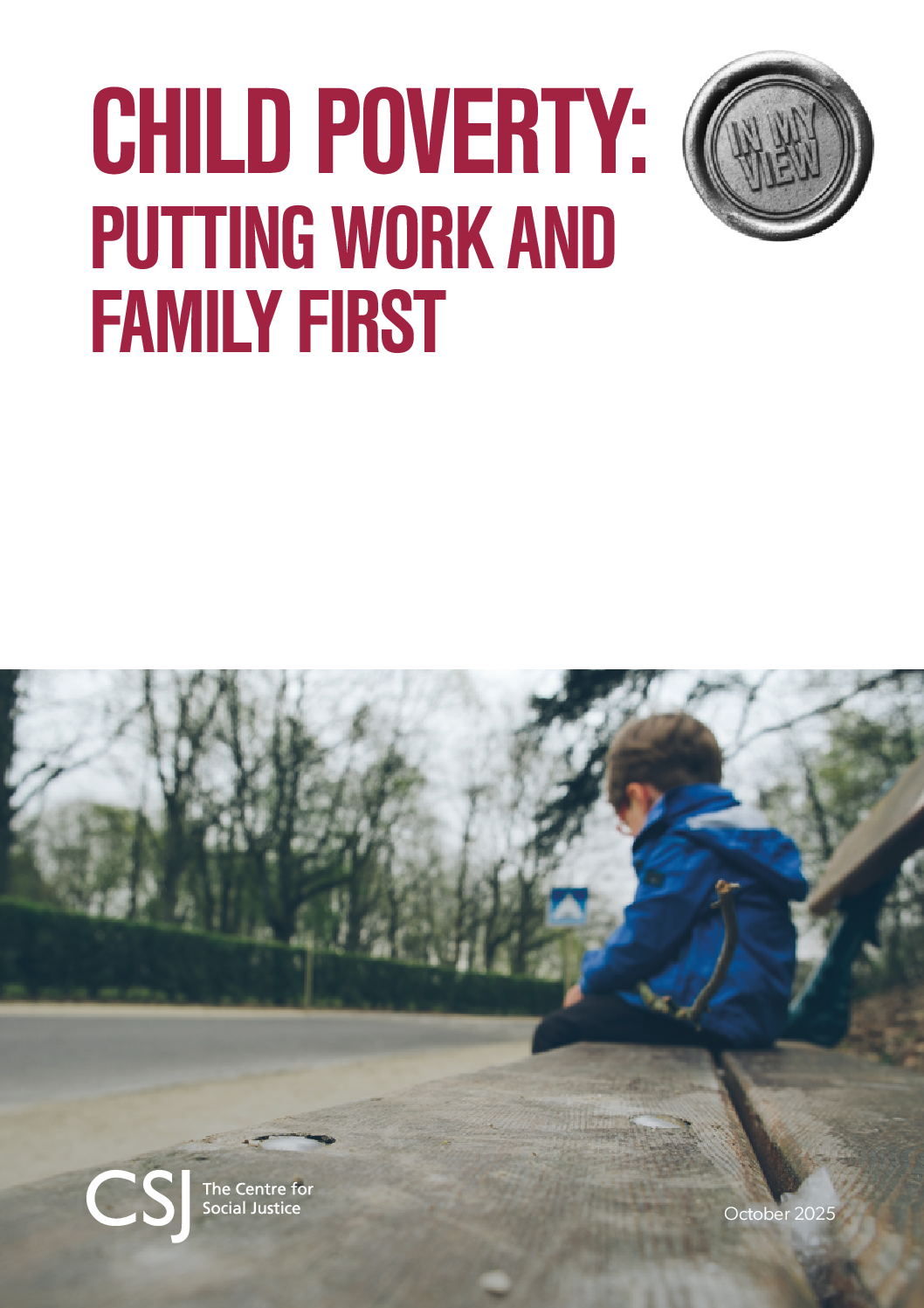Child poverty (using the official definition of families with income below 60 per cent of median income) within the UK has risen to 30 per cent of children with 4.3 million children affected despite years of intervention. The current Child Poverty Taskforce seeking to address this risks making the same mistakes as past attempts and needs to be redirected to ensure families do not continue to fall through the cracks. The current system must address the root causes of child poverty through making work pay and considering whole families.
Making work pay
- 62 per cent of children in workless households are in relative poverty compared to 25 per cent of children in households where at least one adult is working. For material deprivation, a more holistic measure of poverty, children in workless households are four times more likely to be materially deprived.
- Families on Universal Credit can face marginal tax rates of at least 72 per cent.
- An economically inactive claimant on Universal Credit with the average housing benefit and Personal Independence Payment (PIP) for ill health can receive £25,000 a year, a higher income than the £22,500 received by a full-time worker on the National Living Wage.
Considering whole families
- 44 per cent of children in lone parent households live in poverty, compared with 25 per cent in couple households.
- Lone parent households are over ten times as likely to be long-term workless as couple parent households.
- Half of all children in poverty are in families with three or more children.
Change is vital. The Taskforce should strengthen support, introduce practical reforms to reduce costs, and restore opportunities. We suggest:
- Rebalance early years support by paying the working family’s childcare entitlement directly to parents to spend as they see fit to provide children with the best start in life while cutting long-term poverty.
- Tax at a household level: develop a fairer and more supportive system that reflects all circumstances and removes perverse incentives such as for couples to live apart.
- Incentivise work, improve support and deliver savings by targeting mental health benefits: prioritise those with the most severe conditions and reinvest some of these savings in radically expanding access to NHS Talking Therapies and community-based treatment.
These reforms are bold but feasible. These changes will not only reduce poverty levels but do so in a way that is fiscally prudent while giving every child in Britain a fairer start to life.

